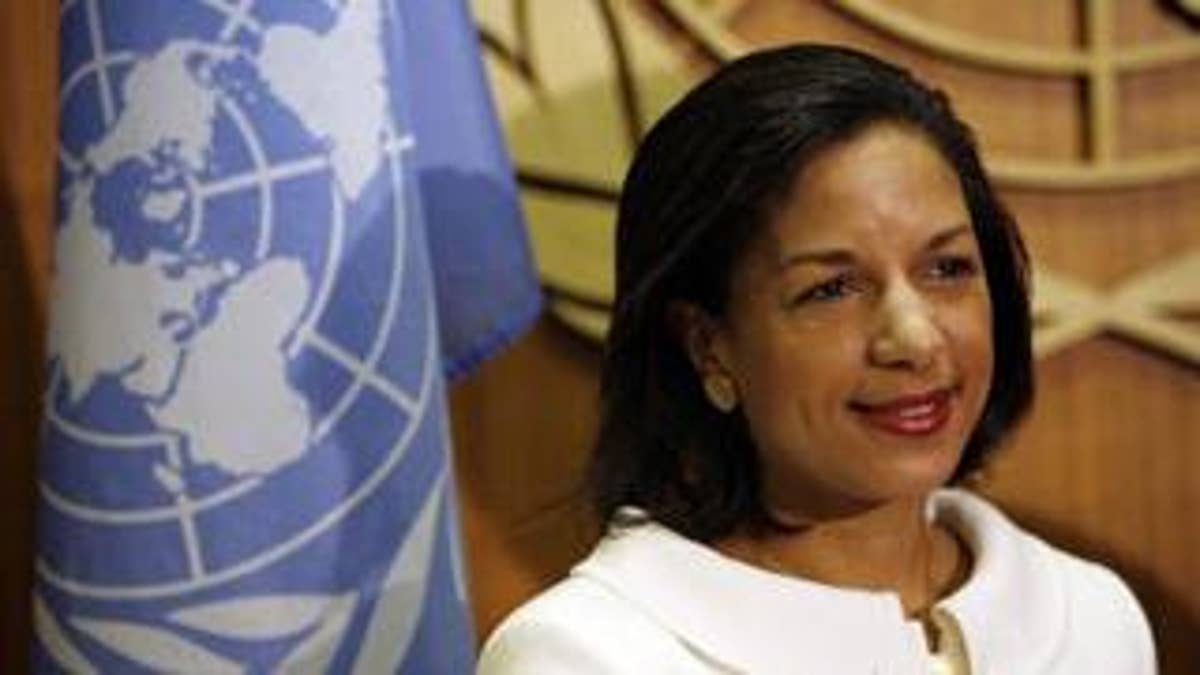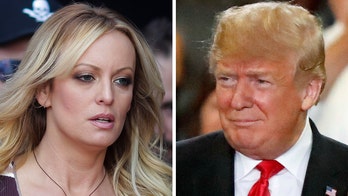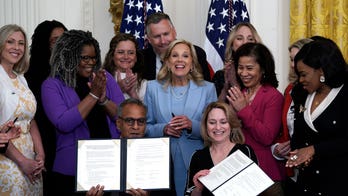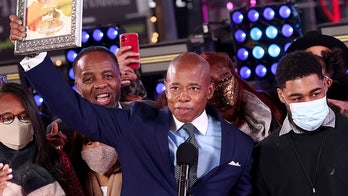
In her first test as U.S. ambassador to the United Nations, Susan Rice has tried to win a U.N. Security Council resolution condemning North Korea's rocket launch last weekend.
So far, she hasn't scored.
But supporters say her persistence and willingness to engage in direct diplomacy with countries like China and Russia will pay off eventually, and that historically it has taken weeks -- sometimes months -- for viable resolutions to be drafted.
"You don't get instantaneous action at the U.N.," former Secretary of State Madeleine Albright told FOXNews.com Wednesday. "It's a legislative process and it all takes a while."
North Korea violated two U.N. resolutions when it sent a rocket hurtling over the Pacific Ocean on Sunday -- a move the White House called "provocative" and said was a threat to the international community.
Rice and others have called for a U.N. Security Council resolution to impose sanctions on Pyongyang, as well as "strong and unified" action from the U.N. community to "denuclearize" the Korean peninsula.
"Because this was a violation of a previous Security Council resolution, we think it would be most appropriate that it would be treated in a subsequent Security Council resolution, but our aim is not only the form, it is the substance," Rice told FOX News this week.
But critics of the U.N., like former U.S. ambassador to the U.N. John Bolton, say they see no indication that a resolution would deter North Korea from advancing its nuclear weapons program. And foreign policy experts say Rice faces an uphill battle convincing the 14 other members of the Security Council that another resolution will be effective.
"The longer the negotiations take for Security Council resolutions, generally the weaker the outcome is. And the failure for the Security Council to enforce its own resolutions to this point is not a good sign that you're going to come out with a very strong outcome," said Brett Schaefer, a fellow at The Heritage Foundation.
Among the challenges facing Rice is placing adequate pressure on China, which has expressed no interest in imposing sanctions on Pyongyang. China supplies North Korea with 80 to 90 percent of its energy as well as food and other humanitarian needs.
But Rice has maintained that the council's members "all share the same goal," which she described as a "thorough and verifiable denuclearization of the Korea Peninsula."
"None of us are happy with North Korea's action over the weekend...the Chinese, the Russians, among many others, worked hard and they're frustrated that they failed to persuade North Korea to refrain from this action," she said.
"Rice is profoundly naive about how the U.N. operates," said Anne Bayefsky, senior fellow at the Hudson Institute and a U.N. critic. "She's got a steep learning curve to understand that not every country shares a democratic, non-nuclear agenda."
Bayefsky said the Security Council's response to North Korea will have important consequences in its dealings with Iran.
"The response of the U.N. to date has simply indicated to Iran that it's got a green light. They're not serious about sanctions," she said.
But other foreign policy experts say that Rice's ability as a diplomat will not be undermined if the council fails to reach a resolution.
"Her lack of success today or in the future is less an indication of her skill as a diplomat than it is the challenges the U.S. faces at the U.N. everyday," said Schaefer. "It doesn't matter if it's Ambassador Bolton or Ambassador Rice, the U.S. is always going to face challenges at the U.N. in getting its policies and priorities advanced."
Rice faces a difficult "balancing act," added Peter Yeo, vice president for public policy at the United Nations Foundation. "She wants the strongest possible resolution, but wants to avoid a resolution that would potentially undermine the six-party talks."
President Obama elevated Rice's ambassadorship to Cabinet rank -- an indicator of the administration's intent to work more closely with U.N. member states than the Bush administration.
Albright said Rice's Cabinet status sends two signals -- one to Washington and the other to New York.
As an ambassador with Cabinet rank, Rice can impact "all kinds of decisions" in Washington, Albright said. "It also means when you travel, you are more likely then to meet with the foreign minister of the country where you're going -- and that helps too."
Rice, 44, who was confirmed by the U.S. Senate by unanimous consent on Jan. 22, has a formidable resume. The Stanford alumna and Rhodes scholar entered politics in 1988 as a foreign policy aide to former Democratic presidential candidate Michael Dukakis.
From 1993 to 1997, Rice served on the staff of the National Security Council as director for International Organizations and Peacekeeping. She became the youngest assistant secretary of state ever in 1997 when President Bill Clinton appointed her to run African affairs at the State Department..
Rice worked as senior adviser to John Kerry during his 2004 presidential bid, and in 2008 she backed Obama for the Democratic nomination because of his opposition to the Iraq war. Obama later made Rice his senior foreign policy adviser during the campaign.
According to Kerry, Rice is "one of our most capable national security thinkers."
"I have had the pleasure of working closely with Dr. Rice over the past years and I can tell you she is exceptionally talented, fiercely conscientious, and one of the most dedicated public servants I know," Kerry told FOXNews.com.
"She understands that the U.S. is strongest when we enlist others in our cause, share our burdens, and lead strategically. Her wise counsel was invaluable to me during the presidential campaign in 2004. Susan is a trusted personal adviser and friend," he said.
"She's incredibly smart," added Albright, who has known Rice since she was a child. "She is someone that has complete command of the facts and the argument. She is also very good at dealing with a variety of people," she said.
In recent days, Rice and the administration have been criticized for its decision to seek a seat on the U.N. Human Rights Council, which has been condemned since its inception in 2006 for its stance on Israel and disregard for blatant human rights abuses around the world.
But Rice has dismissed the criticism, arguing that engagement -- not isolation -- is the most effective way to reform the council.
"While we share the concerns of many countries and many people that the council's trajectory has been disturbing, we believe that it needs change, and believe that as a fully engaged member of the council -- should the U.S. successfully win election -- we will be more effective by working on the inside than from on the sidelines," Rice's communications director, Mark Kornblau, said.
Still, critics say Rice is unwise to get in the middle of a group of despots.
"It's a mistake. It's naive to the point of being dangerous," Bolton said.




